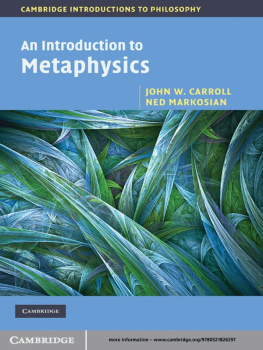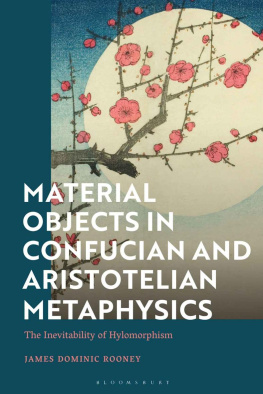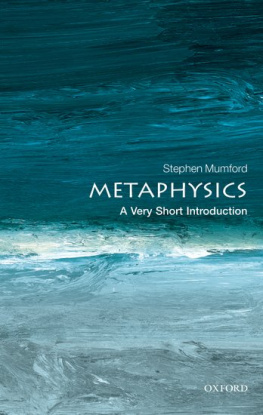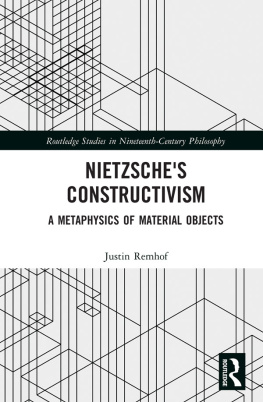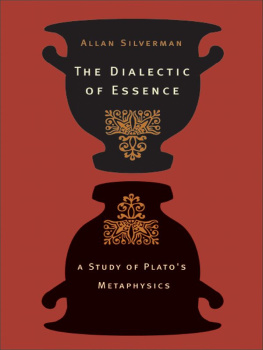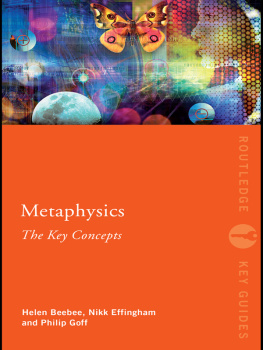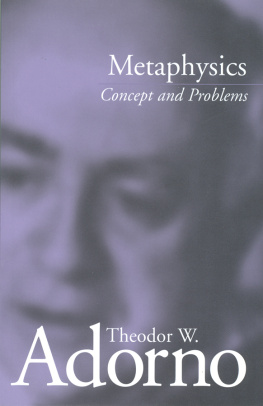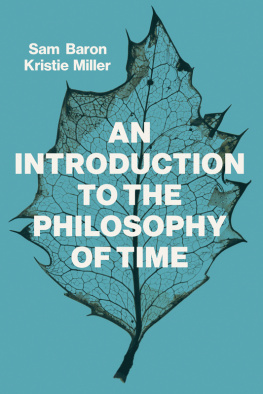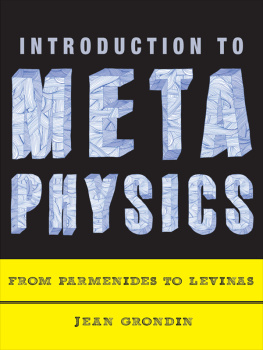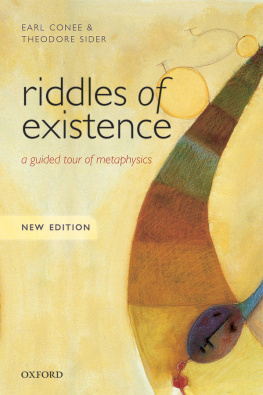Carroll John W. - An Introduction to Metaphysics
Here you can read online Carroll John W. - An Introduction to Metaphysics full text of the book (entire story) in english for free. Download pdf and epub, get meaning, cover and reviews about this ebook. City: New York;Cambridge;UK, year: 2014;2010, publisher: Cambridge University Press, genre: Religion. Description of the work, (preface) as well as reviews are available. Best literature library LitArk.com created for fans of good reading and offers a wide selection of genres:
Romance novel
Science fiction
Adventure
Detective
Science
History
Home and family
Prose
Art
Politics
Computer
Non-fiction
Religion
Business
Children
Humor
Choose a favorite category and find really read worthwhile books. Enjoy immersion in the world of imagination, feel the emotions of the characters or learn something new for yourself, make an fascinating discovery.
- Book:An Introduction to Metaphysics
- Author:
- Publisher:Cambridge University Press
- Genre:
- Year:2014;2010
- City:New York;Cambridge;UK
- Rating:3 / 5
- Favourites:Add to favourites
- Your mark:
An Introduction to Metaphysics: summary, description and annotation
We offer to read an annotation, description, summary or preface (depends on what the author of the book "An Introduction to Metaphysics" wrote himself). If you haven't found the necessary information about the book — write in the comments, we will try to find it.
This book is an accessible introduction to the central themes of contemporary metaphysics. It carefully considers accounts of causation, freedom and determinism, laws of nature, personal identity, mental states, time, material objects, and properties, while inviting students to reflect on metaphysical problems. The philosophical questions discussed include: What makes it the case that one event causes another event? What are material objects? Given that material objects exist, do such things as properties exist? What makes it the case that a person may exist at two different times? An Introduction to Metaphysics makes these tough questions tractable by presenting the features and flaws of current attempts to answer them. Intended primarily for students taking a first class in metaphysics, this lucid and well-written text would also provide an excellent introduction for anyone interested in knowing more about this important area of philosophy.
Carroll John W.: author's other books
Who wrote An Introduction to Metaphysics? Find out the surname, the name of the author of the book and a list of all author's works by series.

